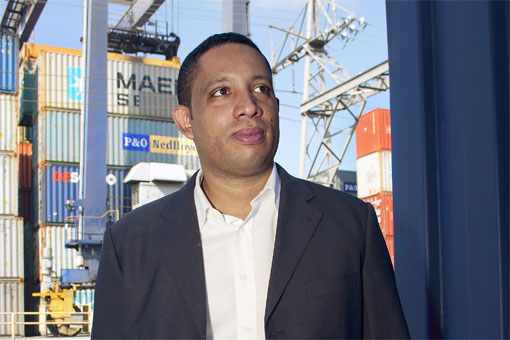Our generation expects gratification. Previous generations did not have instant access to information nor the ability to communicate with the same level of immediacy that the Internet, mobile phones and BlackBerries give us today. We have become less forgiving of delays and inefficiencies.
But the flood of instant information has its risks. This is particularly true for issues that require a long-term approach and the patience to be addressed step by step. Preserving our environment for future generations is one such issue. The world has already paid a high price for the way we have wasted global resources. It took us many decades—even centuries—to reach this point, and we will not be able to correct our mistakes overnight. Likewise, young business leaders who want to do the right thing environmentally and build successful countries and businesses must learn how to set long-term achievable goals. Information used carefully and conscientiously can help get us there.
Countries and companies are made up of people. Many developed countries became successful by providing quality education to their populations and using technology to manage and disseminate information. Information is the key to development. Citizens in emerging countries often lack both access to quality education and access to technology. This is a serious impediment to progress.
With innovation, developing countries can find new ways to compete. But getting there requires improving citizens’ access to information as well as their ability to apply technology. Ensuring those basic functions is the most important thing a government can do, and over the long term, it will generate more revenue and value than trade tariffs and protected markets.
Our generation has broken many barriers and belief systems. Larry Page and Sergey Brin, the founders of Google, have shown that big companies are not exclusively built by rich families. These role models are inspiring a new generation of entrepreneurs to achieve higher levels of success.
The Internet and social networks like Facebook and Twitter that came with it have led to increased transparency. With the diffusion of different views and ideas across borders, the nature of both politics and commerce has changed. Businesses have had to adjust and ensure they are providing and acting upon reliable information. They have become more accountable. However, these changes have been far more evident in developed nations. The digital divide has widened the gap between the rich and poor and the educated and uneducated.
The same openness to innovation, to new ways of doing things through the use of modern technology, is common to other entrepreneurs of my generation across the region. With the click of a mouse, business managers can learn about the preferences and demands of existing and potential customers, all without intermediaries. But using this resource for instant market research is only possible if our workforce and people have the right training and technology. Unfortunately, in most of Latin America, these skills are lacking.
I like to think that I’m playing my part in helping Panama and the region take advantage of this new environment and opportunities. Historically and geographically, Panama has played a central role in the movement of goods, even before the creation of the Panama Canal in the early 1900s, dating back to the days of the Spanish Empire. Today, Panama continues to be at the forefront of the shipping industry. I run a technology and management company in Panama that focuses on the shipping container industry. Our goal is to develop a more efficient use of resources in the vital area of global container shipping. I foresee the shipping industry continuing to play a major role in the globalized world economy by becoming more streamlined and energy efficient.
Shipping is an industry that could use information technology to achieve greater efficiency and reduce costs, leading to cheaper cargo transportation. I believe that there is a huge opportunity for advancement in this area that can reap positive benefits for world trade and ultimately less-developed nations.
The online interactive technology that our company has developed provides a Global Container Management Network that enables shipping companies to more efficiently rotate the use of shipping containers. By providing companies with real-time information about available containers around the world, we reduce the annual multibillion dollar cost and the carbon footprint of moving empty containers around the world.
Cheaper cargo transportation can benefit our region in many ways. Now, it is estimated that as much as 60 percent of the end cost of a product can be in transportation costs. One of the benefits of cheaper cargo transportation will be that emerging countries will have an increased opportunity to compete in the global marketplace.
It is my hope that through an improved, efficient and more affordable global cargo transportation system, the resources of information and education can reach an ever greater amount of the world’s population in my lifetime.





